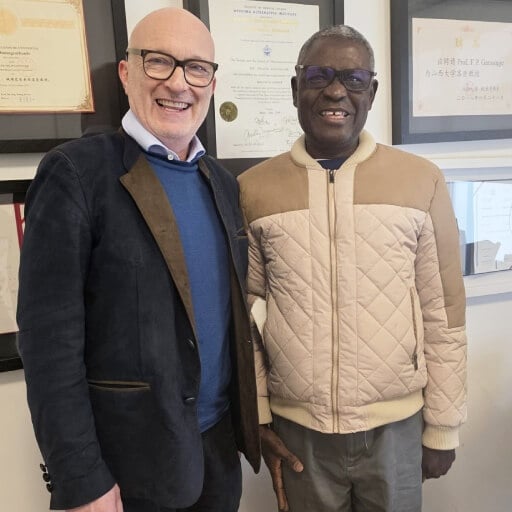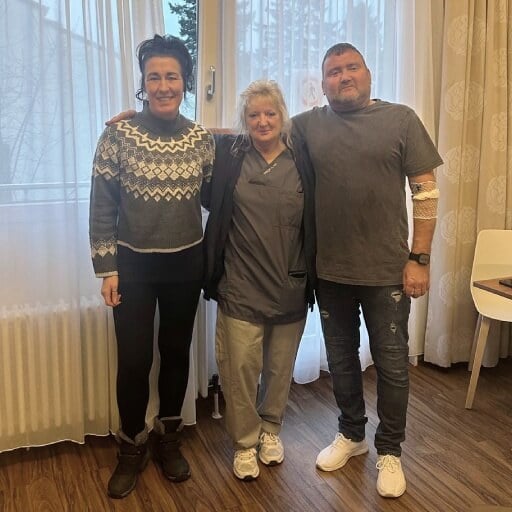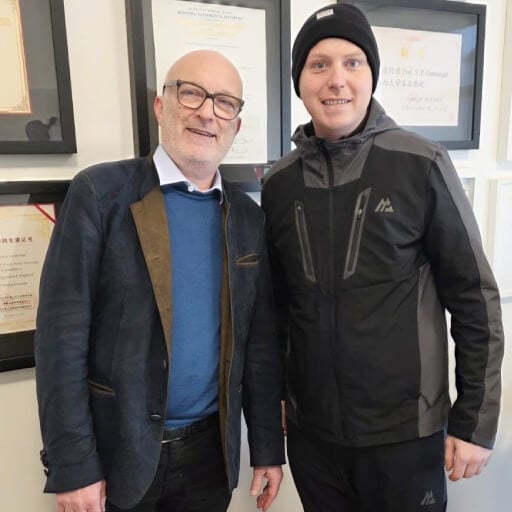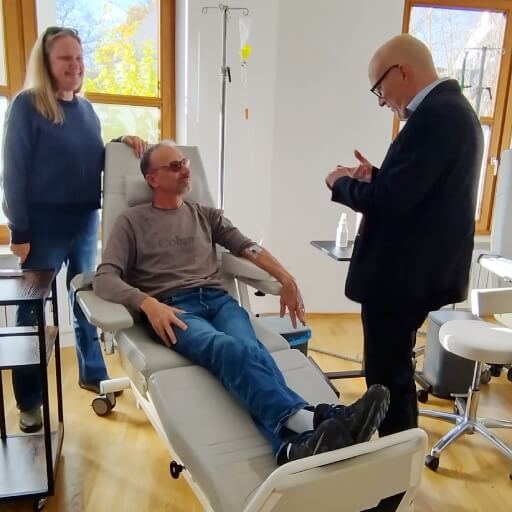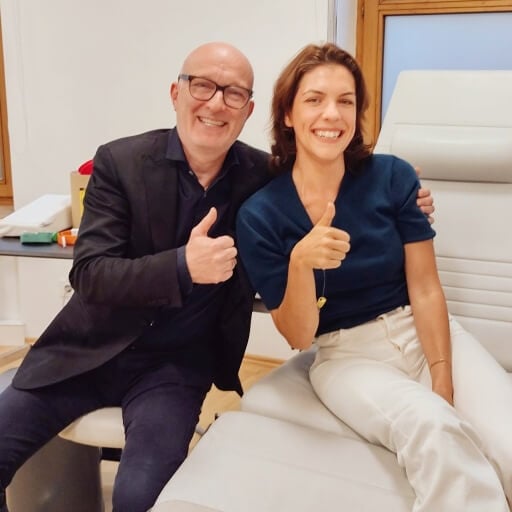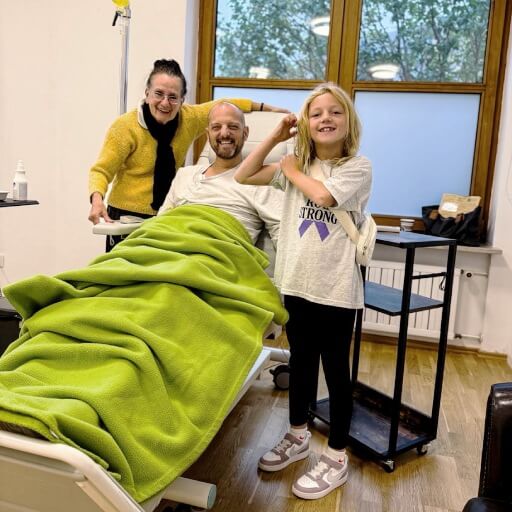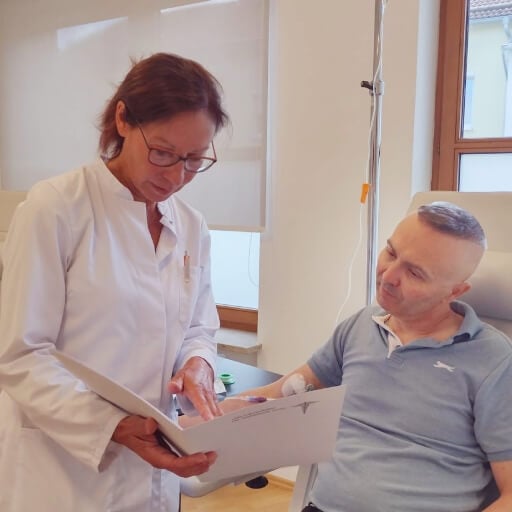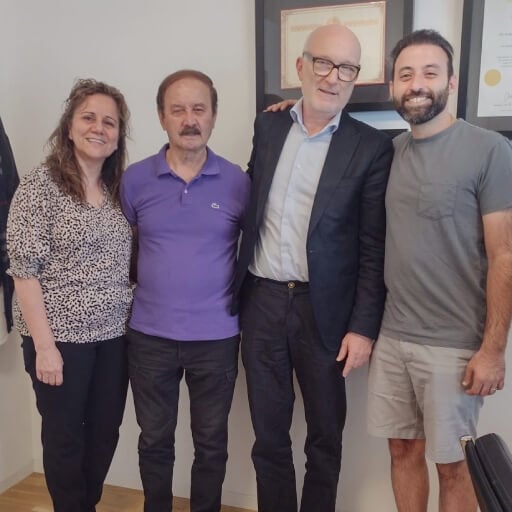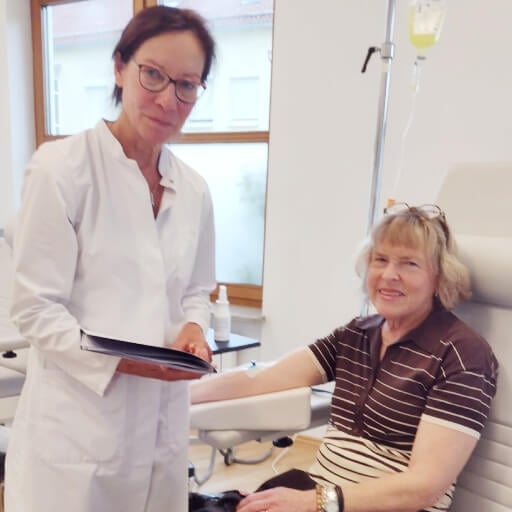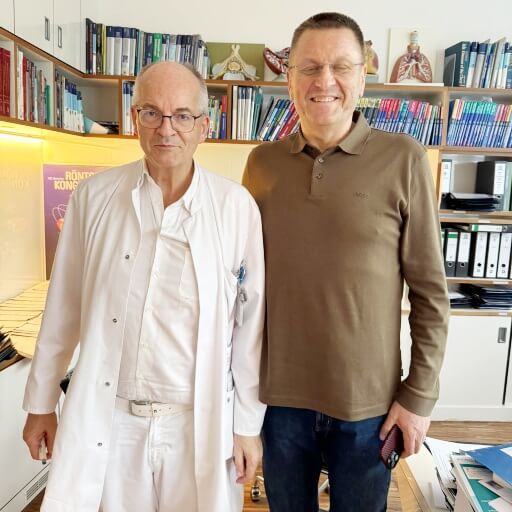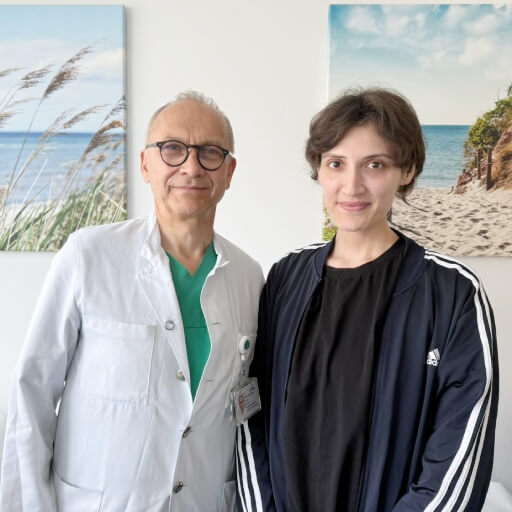Germany has become one of the leading destinations for medical tourism. Among European nations, it is considered to have the most developed healthcare system. More than 11% of GDP is invested in health care, and these efforts show clear results. Germany ranks third in global life expectancy and holds second place for women’s longevity. German doctors and highly qualified medical professionals are committed to supporting every patient with top-level services, regardless of citizenship or medical history. Such a comprehensive approach guarantees that even complex diseases can be treated effectively.
The phrase treatment in Germany has become a worldwide symbol of solving complex health problems. Every year, thousands of international patients arrive from other countries seeking reliable medical care and advanced therapies. German clinics provide comfortable conditions for foreigners: medical treatment can be paid out-of-pocket or covered by insurance, which makes such services more accessible. At the same time, German hospitals guarantee the highest quality of healthcare, ensuring that patients receive the most effective treatment options.
Why Choose Germany for Treatment
Many patients discover that medical treatment in Germany combines world-class expertise with personalized attention, creating the best conditions for recovery far from their home country. The main features of the treatment process in Germany are precision, careful planning, and attention to every detail of the patient’s health.
Treatment Process in Germany
The first step often includes remote processing of medical reports and previous examinations. Before a physician approves admission to the clinic, he carefully studies the available data, prepares a preliminary diagnostic plan, and suggests possible treatment options.
After arrival and personal consultation, the patient is referred to a diagnostic medical department for a comprehensive examination. German equipment allows the repetition of all investigations at the highest level, including X-rays, laboratory tests, and imaging. For this reason, there is no need to incur extra costs in the home country - the quality of diagnostics in Germany is superior.
Based on the results, the professor or best doctor develops an individual program of treatment. If necessary, consultations with related medical experts are arranged, and a multidisciplinary board is convened. When possible, outpatient services are offered to avoid unnecessary hospitalization. Otherwise, the patient is admitted to the hospital, where wards resemble hotel rooms rather than standard medical departments. During the stay, medications are prescribed in accordance with international standards, and all procedures are performed by highly qualified doctors.
Follow-up and Patient Support
After completion of therapy, the physician provides detailed recommendations for follow-up. This includes control examination, repeated X-rays, and, if needed, rehabilitation in the same hospital or at a specialized resort. Thanks to such a comprehensive approach, patients receive continuous medical help, both in person and remotely, ensuring clear communication and overcoming possible language barriers.
Health Care Quality in Germany
Every German hospital provides high-quality treatment, because both the physician and the medical professionals of the institution are responsible for the patient’s health and safety. Regardless of citizenship, every patient officially stays in the hospital and receives the necessary medical care with proper documentation. Therapeutic decisions are made not by personal preference, but in line with international guidelines and recommendations of authoritative associations [1].
All hospitals in Germany undergo strict inspections to confirm compliance with national and international quality standards. Only advanced operating techniques, innovative drugs, and minimally invasive surgery are applied, which makes treatment safer and more effective. Clinical research continuously develops new therapies, modern medications, and methods that reduce side effects while improving outcomes.
Strict requirements are also applied to assistance companies that help foreign patients organize diagnostics, appointments, and services. The ISO 9001:2015 certification evaluates the qualifications of specialists, the competence of selecting the right hospitals and doctors, the quality of travel organization, and the reliability of offered services.
Medical Service Strict Control
Although there are several types of medical institutions in Germany, they all comply with unified quality standards [2]. This means that both multidisciplinary university hospitals and specialized private clinics undergo strict inspections and mandatory certification.
Certification is conducted through several systems:
- DIN EN ISO 9001 - a standard developed by the German Institute for Standardization and spread across other countries
- KTQ (Cooperation for Transparency and Quality in Health Care)—a certificate evaluating diagnostics, treatment, and modernization of equipment
- EFQM - a model that rates institutions and awards the best clinics for their quality annually
- IQM (Initiative "Quality Medicine") - considers 350 healthcare indicators and covers 64 medical departments
All information about medical care indicators is publicly available. This transparency allows patients to make informed decisions, choosing the right physician and hospital based on quality data. It reflects a comprehensive approach where both the doctor and the patient participate equally in the process.
How Is the Price of a Medical Program Determined?
In Germany, the costs of medical services are regulated at the state level. The unified system - G-DRG (German diagnosis-related groups) - calculates the treatment price based on the type of diagnosis (for example, cardiological or neurological diseases) and the applied treatment method [3]. The same tariffs apply to both German citizens and international patients. Interestingly, receiving treatment in a German hospital may even save money compared to long and ineffective therapies in the home country.
However, any hospital may add extra charges to the basic G-DRG tariff if complications arise. For example, after a complex surgery with risks or an extended stay in intensive care, the total price can increase by up to 10%. It is essential to carefully check invoices and ensure that such additional costs are justified.
Other services - such as flights, accommodation, and interpreters - are calculated individually. Patients can decide whether to choose budget or premium options: a single or double room in the hospital, or even apartments within walking distance from the clinic. This process may seem complicated, but with proper planning, clear communication, and reliable organizational support, international patients can manage all details effectively.
Treatment in Germany Scope and Disease Types
Germany is recognized worldwide for its advanced treatment across multiple specialties. Patients benefit from high-quality healthcare, access to experienced doctors, and medical professionals who provide personalized care for complex diseases and conditions.
Neurosurgery
Germany is traditionally considered a global leader in the treatment of neurosurgical diseases, including brain and spinal cord disorders. Specialized devices, such as the O-shaped arm, are used to correct spinal defects while reliably protecting the spinal cord from damage. Brain surgery, for conditions like glioblastoma, is performed under neuronavigation control, ensuring that vital brain centers are carefully monitored during the operation and minimizing the risk of postoperative neurological complications. Highly skilled doctors and medical experts collaborate closely in these procedures.

Cancer Treatment and Oncology
A multidisciplinary team of physicians in Germany observes cancer patients, designing treatment programs individually. While traditional methods are applied, innovative techniques are constantly developed:
- Tumors and metastases are removed using Gamma Knife and CyberKnife, with an accuracy of 0.3 mm
- Targeted radiation therapy minimizes harm to healthy tissues
- Medications for chemotherapy are optimized based on tumor sensitivity through clinical trials
- Controlled hyperthermia enhances chemotherapy effectiveness by sensitizing malignant cells
- Immunotherapy, including dendritic cell vaccines, supports patients with advanced-stage cancer
All types of cancer - neuroblastoma, prostate, lung, breast, pancreatic, and rectal malignancies - are successfully treated in German hospitals, which reflects the high quality of medical care and the expertise of medical professionals.
Cardiovascular Treatments
People with heart conditions come to Germany for minimally invasive procedures and modern implantable devices. Examples include:
- TAVI (transcatheter aortic valve implantation) under local anesthesia
- MitraClip for mitral valve pathology
- Pacemaker and mechanical heart support system implantation
These advanced treatments are performed by experienced physicians in hospitals, with attention to health, patient comfort, and long-term outcomes.
Orthopedics and Joint Replacement
Patients with joint diseases visit Germany for endoprosthetics. German doctors select individualized prostheses made of hypoallergenic materials, ensuring durability over 20 years. Revision surgeries are also performed when previous interventions in the home country were unsuccessful. This approach guarantees optimal health outcomes, faster recovery, and reduced complications.
Diabetes Management
Germany is at the forefront of innovative treatment for type 2 diabetes. Advancements include:
- Artificial intelligence and machine learning to predict blood sugar fluctuations and optimize therapy
- Gut microbiome modulation as a novel therapeutic strategy to restore metabolic balance
- Development of next-generation medications targeting multiple pathways in glucose regulation
These innovations demonstrate how medical care in Germany integrates technology, clinical research, and individualized attention for patients.
Multiple Sclerosis and Neurological Care
For multiple sclerosis (MS), German hospitals provide cutting-edge treatment, including:
- Highly effective infusion therapies using monoclonal antibodies
- Regenerative therapies to repair damaged myelin
- Oral medications as alternatives to infusion therapy
- Comprehensive care models combining advanced imaging, follow-up, and personalized rehabilitation programs
This multi-layered approach ensures that patients receive the highest quality medical help, with emphasis on long-term health and well-being.
Advantages Over Other Countries
German medicine offers patients more opportunities than other countries do. This is natural due to several key aspects:
- High financing of the healthcare system, with more than 11% of GDP invested in health care, ensures that hospitals, clinics, and medical departments have access to the latest equipment, innovative medications, and high-quality services
- Continuous advanced training and confirmation of academic titles for all German doctors, which guarantees that medical professionals and physicians provide world-class medical treatment and medical help to every patient
- High-tech treatment using minimally invasive endoscopic and robotic techniques, all performed by highly qualified doctors, which improves health outcomes and reduces complications
- The latest pharmaceutical developments and medications, validated in clinical trials, are integrated into patient-specific treatment programs
- Integrative approach to diagnostics and treatment, taking into account each patient’s medical history, with detailed examination and structured follow-up, ensuring clear communication and individualized medical care
- Costs of medical services are transparent and regulated at the legislative level, allowing international patients to plan the total price accurately and potentially save money compared to care in their home country
Leading Hospitals for Medical Treatment in Germany
Germany offers international patients access to top-tier hospitals and medical departments staffed by highly qualified doctors and medical professionals.
- Leading university hospitals, such as Helios Hospital Berlin-Buch and University Hospital Rechts der Isar in Munich, provide advanced care in neurosurgery, oncology, and complex diagnostics, supported by ISO 9001 certification and modern technologies.
- Municipal and academic hospitals, including Academic Hospital Marien in Duesseldorf, University Hospital RWTH Aachen, and Academic Hospital Bogenhausen in Munich, offer comprehensive medical care, emergency services, and specialized centers for cancer, interventional radiology, and robotic surgery, ensuring high-quality treatment in Germany for patients from other countries.
Private hospitals such as Schoen Clinic in Duesseldorf and Diagnostic Clinic Kantpraxis in Berlin are renowned for personalized medical treatment, full follow-up, innovative surgical techniques, and cutting-edge diagnostics. These institutions maintain strict German quality standards, ensuring safe, efficient, and patient-centered health care across all specialties.
The Costs of Medical Care in Germany
The treatment in Germany is much cheaper than in Israel and other European countries, and its quality is one of the highest in the world.
Unlike many countries, the costs of medical services are regulated by the law. Therefore, prices for a medical tourist will be the same as for a German citizen.
Here are the prices for the most popular medical services:
Neurology and neurosurgery, average prices:
- Minimally invasive surgery in cervical disc herniation, 1 segment – 10,300 - 13,300 €
- Minimally invasive surgery in lumbar disc herniation, 1 segment – 10,100 - 11,700 €
- Surgical removal of the brain tumor – 36,700 - 46,500 €
- Removal of a brain tumor with the latest model of Gamma Knife – 12,200 - 15,300 €
- Examination and therapy in complex forms of epilepsy – 10,280 €
Orthopedics and joint replacement, average prices :
- Hip replacement and rehabilitation – 20,200 - 27,300 €
- Conservative treatment of the hip joint arthrosis – 5,000 - 5700 €
- Total knee replacement and rehabilitation – 20,600 - 29,100 €
Cardiology, average prices :
- Pacemaker implantation – 11,000 - 13,400 €
- Coronary stent implantation – 27,700 - 31,700 €
- Coronary artery bypass grafting – 34,420 - 38,800 €
- Surgical closure of the atrial septal defect – 23,300 - 29,100 €
- Surgical treatment of heart defects without the use of a heart-lung machine– 32,570 €
Oncology and hematology, average prices :
- PSMA therapy with Lutetium-177 in prostate cancer – 12,700 - 28,900 €
- Sectoral resection in breast cancer – 11,600 - 12,400 €
- Stomach cancer surgery (partial removal) – 23,700 - 37,500 €
- Lung cancer surgery (segmental resection) – 25,900 - 34,100 €
- Proton therapy in brain cancer – 56,900 - 90,500 €
Urology, average prices :
- Transurethral resection of the prostate using a green laser – 13,400 - 22,100 €
- Prostatectomy with the help of the da Vinci robot in prostate cancer – 16,700 - 22,500 €
- Non-invasive kidney stones removing – 9,000 - 12,200 €
- Correction of erectile dysfunction – 2,350 €
- Surgical treatment of varicocele – 8,500 - 9,300 €
Ophthalmology, average prices :
- Retinal detachment surgery – 2,400 - 21,300 €
- Lens replacement in cataract – 8,400 - 9,600 €
- LASIK correction of myopia –8,200 - 8,500 €
General surgery, average prices :
- Laser therapy in varicose veins – 6,100 - 7,700 €
- Surgical removal of kidney stones in hydronephrosis – 11,300 - 12,100 €
- Endoscopic surgery in inguinal hernia – 7,480 €
Obstetrics and gynecology, average prices :
- Natural childbirth – 5,000 - 7,700 €
- C-section childbirth – 4,600 - 11,500 €
- Diagnostics of female infertility – 4,357 €
- Artificial insemination – 3,640 €
- Da Vinci surgery in uterine fibroids – 10,900 - 15,600 €
Preventive examination (check-up), average prices :
- Basic check-up – 3,350 €
- Gynecological check-up – 1,813 - 2,020 €
- Orthopedic check-up – 1,293 - 1,780 €
- Ophthalmologic check-up – 1,676 - 1,976 €
- Full body extended comprehensive examination – 14,170 €
Rehabilitation (recovery after the main therapy course), average prices :
- Cardiac rehabilitation – 783 € per day
- Orthopedic rehabilitation –361 € per day
- Neurorehabilitation phase C after a stroke or injury – 887 € per day
A Medical Journey: Every Step of the Way With Booking Health
Finding the best treatment strategy for your clinical situation is a challenging task. Being already exhausted from multiple treatment sessions, having consulted numerous specialists, and having tried various therapeutic interventions, you may be lost in all the information given by the doctors. In such a situation, it is easy to choose a first-hand option or to follow standardized therapeutic protocols with a long list of adverse effects instead of selecting highly specialized innovative treatment options.
To make an informed choice and get a personalized cancer management plan, which will be tailored to your specific clinical situation, consult medical experts at Booking Health. Being at the forefront of offering the latest medical innovations for already 12 years, Booking Health possesses solid expertise in creating complex management programs in each individual case. As a reputable company, Booking Health offers personalized treatment plans with direct clinic booking and full support at every stage, from organizational processes to assistance during treatment. We provide:
- Assessment and analysis of medical reports
- Development of the medical care program
- Selection of a suitable treatment location
- Preparation of medical documents and forwarding to a suitable clinic
- Preparatory consultations with clinicians for the development of medical care programs
- Expert advice during the hospital stay
- Follow-up care after the patient returns to their native country after completing the medical care program
- Taking care of formalities as part of the preparation for the medical care program
- Coordination and organization of the patient's stay in a foreign country
- Assistance with visas and tickets
- A personal coordinator and interpreter with 24/7 support
- Transparent budgeting with no hidden costs
Health is an invaluable aspect of our lives. Delegating management of something so fragile yet precious should be done only to experts with proven experience and a reputation. Booking Health is a trustworthy partner who assists you in pursuing stronger health and a better quality of life. Contact our medical consultant to learn more about the possibilities of personalized treatment with innovative methods and with leading specialists in this field.
Every Patient Has a Story: Booking Health Treatment Journeys that Inspire
FAQ: Medical Treatment in Germany
Send request for treatmentChoosing treatment in Germany ensures high-quality healthcare with access to experienced doctors, advanced diagnostics, and innovative treatments. Hospitals follow strict quality standards in Germany to deliver safe and effective care.
Booking Health supports treatment in Germany by coordinating appointments, providing visa support, handling medical reports, and organizing travel. They ensure clear communication and smooth access to top medical professionals.
Patients can access cutting-edge therapies and innovative treatments in Germany, including spheres of oncology, cardiology, and neurosurgery. German hospitals offer minimally invasive surgery, advanced medications, and personalized programs for all major diseases.
Yes, transparent pricing in Germany ensures no markup for foreign patients. Costs follow G‑DRG standards and are regulated at the state level, allowing international patients to plan their total price accurately.
All hospitals follow strict quality standards in Germany. Certifications like ISO 9001 ensure that treatment in Germany is safe, effective, and performed by qualified physicians and medical professionals.
Germany is renowned for oncology, cardiology, neurosurgery, and innovative therapies across multiple medical departments, ensuring personalized, high-quality healthcare for every patient.
Yes, visa support in Germany is part of the Booking Health service. They assist with travel, appointments, accommodation, and local language assistance in German hospitals for smooth treatment planning.
Absolutely. Many services provide language assistance in German hospitals, ensuring clear communication for international patients, reducing language barriers, and supporting a smooth medical treatment experience in Germany.
Germany offers comprehensive and sometimes unique options for each clinical situation. These are Gamma Knife and CyberKnife for precise tumor removal, TACE for targeted drug delivery, RFA for destroying cancer cells, dendritic cell vaccines, and much more.
Treatment costs in Germany are transparent and regulated by law. For instance, PSMA therapy with Lutetium-177 ranges from €12,700 to €28,900, dendritic cell therapy is priced between €20,000 and €38,000, etc. With Booking Health, international patients have the same bills as German citizens.
Leading university hospitals (such as Helios Hospital Berlin-Buch and University Hospital Rechts der Isar in Munich) and academic centers (like RWTH Aachen, Hospital Bogenhausen and Marien Hospital Düsseldorf) provide high-quality treatment for international patients.
Choose treatment abroad and you will be sure to get the best results!
Authors:
This article was edited by medical experts, board-certified doctors Dr. Nadezhda Ivanisova, and Dr. Bohdan Mykhalniuk. For the treatment of the conditions referred to in the article, you must consult a doctor; the information in the article is not intended for self-medication!
Our editorial policy, which details our commitment to accuracy and transparency, is available here. Click this link to review our policies.
Sources:
[1] Andrea Döring, Friedemann Paul. The German healthcare system. EPMA J. 2010 Dec 18;1(4):535–547. doi: 10.1007/s13167-010-0060-z. [DOI] [PMC free article]
[2] Miriam Blümel, Anne Spranger, Katharina Achstetter, Anna Maresso, Reinhard Busse. Germany: Health System Review. Health Syst Transit. 2020 Dec;22(6):1-272. [PubMed]
[3] Springer Nature. The German healthcare system. https://link.springer.com/article/10.1007/s13167-010-0060-z
Read:
Top 10 Best Hospitals in Germany
Medical tourism in Germany: how to go for treatment?
Famous German quality or why treatment in Germany is so effective
Article menu:
Don't know where to start?
Contact Booking Health
